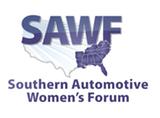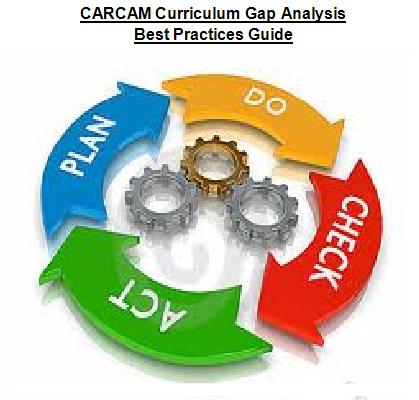|
It was spring 2005, and Montgomery area leaders were buzzing about an event that would transform the city and region in many ways.
On May 20 of that year, Hyundai Motor Manufacturing Alabama, a $1.7 billion automobile assembly plant located on more than 1,700 acres in southwest Montgomery, held its official grand opening.
Today, nearly a decade later, the 3.2-million-square-foot manufacturing plant employs more than 3,000 and produces tens of thousands of vehicles each year. Hyundai’s Alabama operation has also become the centerpiece of a Korean infrastructure in the state that keeps growing and producing.

The 1 millionth Hyundai built in Alabama rolls off the assembly line at the Montgomery plant
“Both culturally and economically, it’s made a huge impact in our community. Huge,” said Ellen McNair, senior vice president of Corporate Development for the Montgomery Area Chamber of Commerce.
The Korean-based automaker’s selection of Montgomery for its first American plant was a catalyst for other companies to locate here as well, and, today, 70 Korean companies are operating in central Alabama. “They employ 15,000 Alabamians,” McNair said.
These are manufacturing companies, McNair noted. Some of the companies support Hyundai and Kia Motors Manufacturing Georgia in West Point. Others came on their own, following the automaker’s lead.
Transitioning Hyundai team members
Montgomery offers Koreans a couple of benefits other communities don’t provide. The first of these is Jeanne Charbonneau, Korean family support coordinator for the city of Montgomery.
Charbonneau’s position was created in 2002 during the plant’s design and construction phase, and since then, she has assisted 600 to 700 Korean team members and their families during relocations from corporate headquarters in Seoul, South Korea, to their positions in Montgomery.
At this time, nearly 50 employees at the plant are Korean.

Pictured are Hyundai team members (l – r) Florin Jurca, a native of Romania, and Jae Hwan Oh, a native of Korea.
The process takes between two and three months for each family.
“When they first arrive, I meet with the new team member first. The family will come later,” Charbonneau explained.
She assists in transferring school records, completing immunization forms, navigating medical systems, and also in selecting housing and connecting utilities.
“We as Americans don’t really appreciate that they (the team members) don’t know each other,” Charbonneau said. “Some of the families won’t have anyone to ask.”
Hyundai is a huge corporation, employing over 78,000 people worldwide.
Koreans who are assigned to the Montgomery plant typically come for a three-to five-year term.
“Nobody moves here to stay,” McNair said. “There’s always an influx of families.”
Because the children will reintegrate into their home school system on their return to Korea, a unique educational program helps them stay current in their language and history.
“Korean Saturday school is run by Korean spouses for Korean students,” Charbonneau said. “They are teaching Korean subjects.”
The school is conducted at Halcyon Elementary and is attended by 225 students in kindergarten through the first year of high school.
“It is the single most important thing that we sell that is unique,” McNair said. “It’s important to any Korean coming.”

The growth of commercial businesses
Along with these specific measures, the Korean infrastructure in Montgomery has grown in many other ways.
When Charbonneau began her work in 2002, she said, “We were eager, but we didn’t have a lot of support.” Now there are Korean grocery stores, restaurants and hair salons. She said the city has a Korean dentist and a Korean golf professional. Do-Re-Mi Karaoke in the Bellwood Shopping Center is Korean-owned.
“The Korean church has been expanded,” Charbonneau said. “Many, many of our churches have started Korean ministries.”
Montgomery Public Schools as well as the city’s private schools have increased their support for international students through English as a second language programs.
“The schools have really stepped up and made a difference in a big way,” Charbonneau said.
Alabama businesses have extended services to meet the needs of Koreans. For example, the Hodges Companies has a full-time liaison to Korean commercial businesses and light manufacturing companies that need warehousing, logistics or commercial real estate services.
Learning from each culture
Another cultural outcome can be seen in the formation of the Alabama-Korea Education and Economic Partnership (A-KEEP) in 2011. The non-profit organization facilitates a youth leadership program enables Alabama students to travel to South Korea for 15 days in June and for Korean students to travel to Alabama for 15 days in February during their winter school breaks.
Cameron Davis was a high school junior in Valley when he participated in the program. He enjoyed his experiences in South Korea so much that he is now interning with A-KEEP as a college student.
“It was a big learning experience,” Davis said. “Cultural diversity is really important. I don’t think we should have to conform to each other. We should learn from each other.”

Hyundai team member Jae Hwan Oh, a Korean coordinator working at the plant since 2012.
Jae Hwan Oh, a Korean coordinator appointed to work at Hyundai Alabama in 2012, is learning about his temporary home in America.
One of the hundreds of Koreans Charbonneau has assisted over the years, Jae met with her, discussed housing and school needs, and she connected him with real estate professionals who could help. Three months after he arrived, his wife and then-1-year-old daughter moved here.
Before Jae’s appointment to the Montgomery plant, he had worked with Hyundai in Seoul for over 10 years. In his current role, he is a coordinator for the purchasing department for the vehicles’ electrical components.
Korean coordinators serve across the plant as liaisons between Montgomery operations and corporate headquarters. For Jae and the others, this setup means long hours, especially since 5 p.m. Alabama time is 8 a.m. the next day in Seoul.
“The things that happen in the plant happen in the daytime, the things at headquarters in the evening,” Jae said.
Learning a new home
When he can, Jae takes time to explore the area. “The first year, my family and I went to antiques shops,” Jae said, and that’s how he learned part of the culture.
Previously, he said, watching television was the only way he knew America, but that view was limited.
“Talking with my colleagues and others, I know the real America,” he said. “All my colleagues, they are very kind to help me or give me some information.”
Though Jae has been to Korean restaurants around town, he also searches for good local eats.
“Fortunately, my wife and kid like American cuisine,” he said.
On weekends, he said, “I spend more time with my family, like other American families.”
During summer breaks, he and his family have visited Destin. During winter breaks, they’ve visited Washington, D.C. Trips like these, he said, are “the chance for my family and me to know American culture. I can see it for myself.”
He added that Korean coordinators are finding “very good things to learn from the American family.” A road trip in a small country like South Korea might take five hours. But exploring America can have a family together for a 14-hour drive. During these trips, Jae observed, coordinators “have many chances to talk with their children.”
“This four-year term is very good chance to create relationships with children,” Jae said.
Full Article: http://alabamapowernews.com/2015/01/13/a-decade-later-hyundais-impact-felt-in-montgomery-and-beyond/
|































